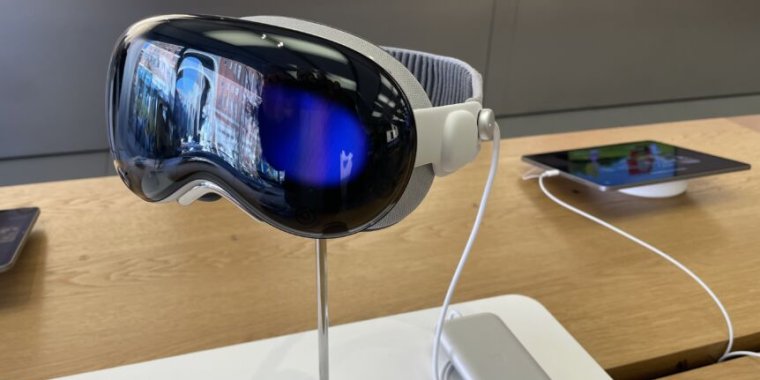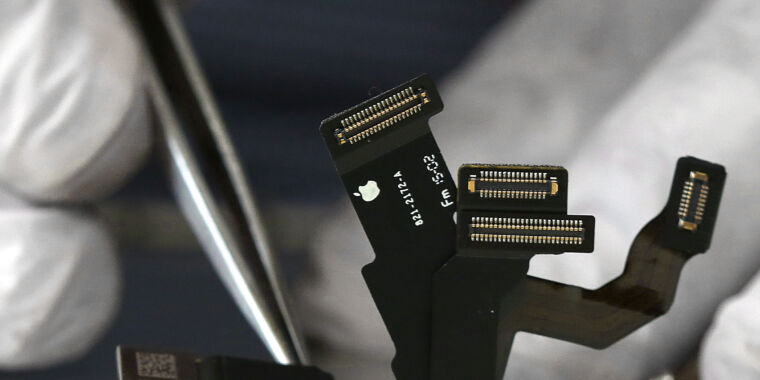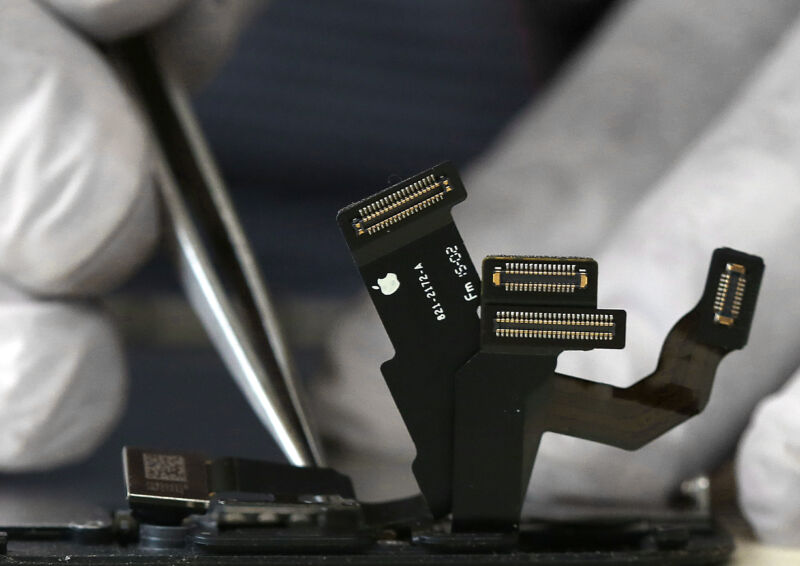Apple Vision Pro, new cameras fail user-repairability analysis
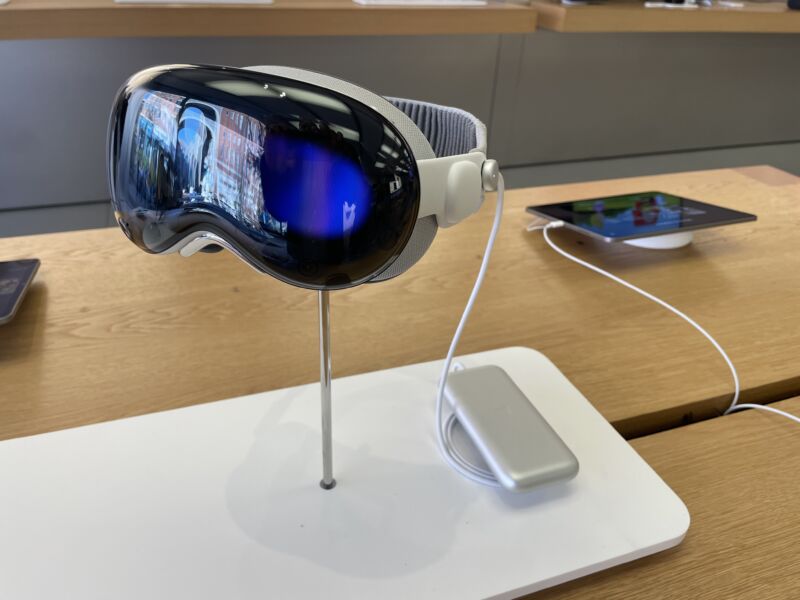
Enlarge / Apple’s Vision Pro scored 0 points in US PIRG’s self-repairability analysis.
Kyle Orland
In December, New York became the first state to enact a “Right to Repair” law for electronics. Since then, other states, including Oregon and Minnesota, have passed similar laws. However, a recent analysis of some recently released gadgets shows that self-repair still has a long way to go before it becomes ubiquitous.
On Monday, the US Public Interest Research Group (PIRG) released its Leaders and Laggards report that examined user repairability of 21 devices subject to New York’s electronics Right to Repair law. The nonprofit graded devices “based on the quality and accessibility of repair manuals, spare parts, and other critical repair materials.”
Nathan Proctor, one of the report’s authors and senior director for the Campaign for the Right to Repair for the US PIRG Education Fund, told Ars Technica via email that PIRG focused on new models since the law only applies to new products, adding that PIRG “tried to include a range of covered devices from well-known brands.”
While all four smartphones included on the list received an A-minus or A, many other types of devices got disappointing grades. The HP Spectre Fold foldable laptop, for example, received a D-minus due to low parts (2 out of 10) and manual (4 out of 10) scores.
The report examined four camera models—Canon’s EOS r100, Fujifilm’s GFX 100 ii, Nikon’s Zf, and Sony’s Alpha 6700—and all but one received an F. The outlier, the Sony camera, managed a D-plus.
Two VR headsets were also among the losers. US PIRG gave Apple’s Vision Pro and Meta’s Quest 3 an F.
You can see PIRG’s full score breakdown below:
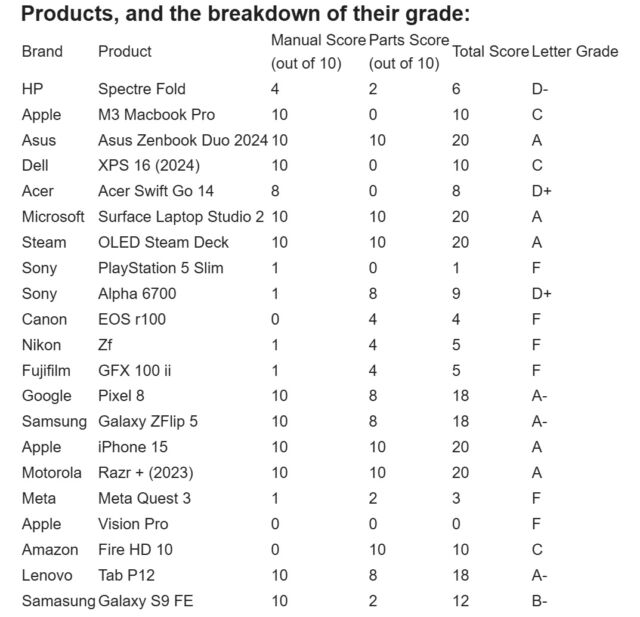
Repair manuals are still hard to access
New York’s Digital Fair Repair Act requires consumer electronics brands to allow consumers access to the same diagnostic tools, parts, and repair manuals that its own repair technicians use. However, the PIRG organization struggled to access manuals for some recently released tech that’s subject to the law.
For example, Sony’s PlayStation 5 Slim received a 1/10 score. PIRG’s report includes an apparent screenshot of an online chat with Sony customer support, where a rep said that the company doesn’t have a copy of the console’s service manual available and that “if the unit needs repair, we recommend/refer customers to the service center.”
Apple’s Vision Pro, meanwhile, got a 0/10 manual score, while the Meta Quest 3 got a 1/10.
According to the report, “only 12 of 21 products provided replacement procedures, and 11 listed which tools are required to disassemble the product.”
The report suggests difficulties in easily accessing repair manuals, with the report’s authors stating that reaching out to customer service representatives “often” proved “unhelpful.” The group also pointed to a potential lack of communication between customer service reps and the company’s repairability efforts.
For example, Apple launched its Self Service Repair Store in April 2022. But PIRG’s report said:
… our interaction with their customer service team seemed to imply that there was no self-repair option for [Apple] phones. We were told by an Apple support representative that ‘only trained Apple Technician[s]’ would be able to replace our phone screen or battery, despite a full repair manual and robust parts selection available on the Apple website.
Apple didn’t immediately respond to Ars Technica’s request for comment.
Apple Vision Pro, new cameras fail user-repairability analysis Read More »
